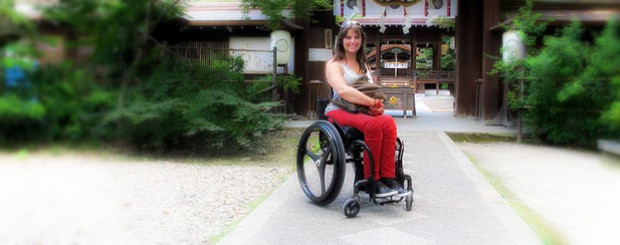7 Tips For Indepedent Disabled Travellers
It has been over 20 years since the U.S.A. formed the Air Carriers Access Act, under which it states,
No air carrier may discriminate against any otherwise qualified individual with a disability, by reason of such disability, in the provision of air transportation.
The introduction of such a milestone in the Disabled community shed light on the future progressions that may occur in terms of public accessibility.
Although, major society and infrastructural improvements are often delayed, the accessibility services have taken a good turn over the past decade. Many facilities have been equipped to cater to the needs of people with various impairments and disabilities. Keeping the fact aside that disabled facilities are yet to reach a stage of uniform accessibility globally, the unavailability of convenient facilities can still be overcome with careful planning and precautions.
We have sorted top 7 tips for independent travellers to experience holidays for the disabled in a carefree and responsible manner.
1. AIR TRAVEL
It is important to remember disability codes followed by airlines differ in each country. Make sure you have a clear understanding of the flights you take, and their disabled facilities. To avoid any surprises, access your respective airline’s website and keep a print of their services for disabled travellers, as airline staff often fails to deliver the promised services.
2. LONG HAUL DESTINATIONS
For the sake of convenience, many disabled travellers prefer travelling to destinations that are nearby their home country. But those who want to explore destinations more than 3-4 hours of flight time must avoid any connecting flights that can be stressful when travelling as a disabled. However, if you have no other option, make sure you give yourself ample of layover time and have all the necessary disabled passengers information printed for both airlines. The upside of connecting flights is to be able to use the spacious restrooms on airports and avoid the cramped cabin lavatory.
3. TRAVEL SERVICES FOR THE DISABLED
It is often best to leave accessible holiday planning to the pros, and avoid all the pre-travel stress. Now, many specialised travel agencies pave the path for disabled travellers, by making all the arrangements while considering every accessibility requirements to the last detail. Their professional services are designed to accommodate the needs of almost every disabled travellers by keeping the destination’s infrastructure in mind. By choosing a disabled holidays provider, you also insure a hassle free vacation for yourself, leaving no room for error.
4. DISABILITY DESCRIPTION
While making arrangements for your independent accessible holiday, always describe your abilities in layman terms to airlines, hotels, transportation, tourist spots etc. The terminology related to disability may be a part of your everyday life, but is not often understood by many. When gathering information on accessible services, aware the person of what specific requirements you have. Simply stating your disability can often leave out important accessibility details that only apply specifically to you.
5. PLANNING AND BACKUP
When planning a wheelchair accessible holiday abroad, allow yourself enough time to make everything happen. There may be times that your choice of accommodation may be undergoing maintenance, or the hired wheelchair accessible vehicle goes out of service. When you start planning well ahead in time, you allow yourself to have backups at the destination to make sure you don’t run into any surprises.
6. INSURANCE
For independent disabled travellers, it is best to secure the holiday through a travel insurance that includes any hazard that you expect as a disabled person. It may include flight delays, loss of baggage, medical emergencies, theft and loss of documents abroad etc. Always leave a copy of all the reservations and addresses behind with your insurer and a friend or family member.
7. DOCTOR’S APPROVAL
Consult your doctor for a thorough checkup confirming that you are fit to travel for the time duration of your accessible holiday. Describe your destination and holiday activities to eliminate the chances of health risks or physical exertion that your health examiner suspects. An ideal independent holiday experience is all about safety and enjoyment.
While these are the basic preparation tips, your independent travel as a disabled will mainly be designed around your specific requirements. If you have decided not to consult an accessible holiday provider, make a list way ahead in time and keep building your requirements as you come across them. Thorough preparation is the key!
Found this helpful? Leave your comments and queries below, and share how these tips benefitted you. Call us at (+44) 020 79 894 894 or email at info@ablejourneys.com for more information.
Take a moment to visit our social media pages, and don’t forget to follow.

